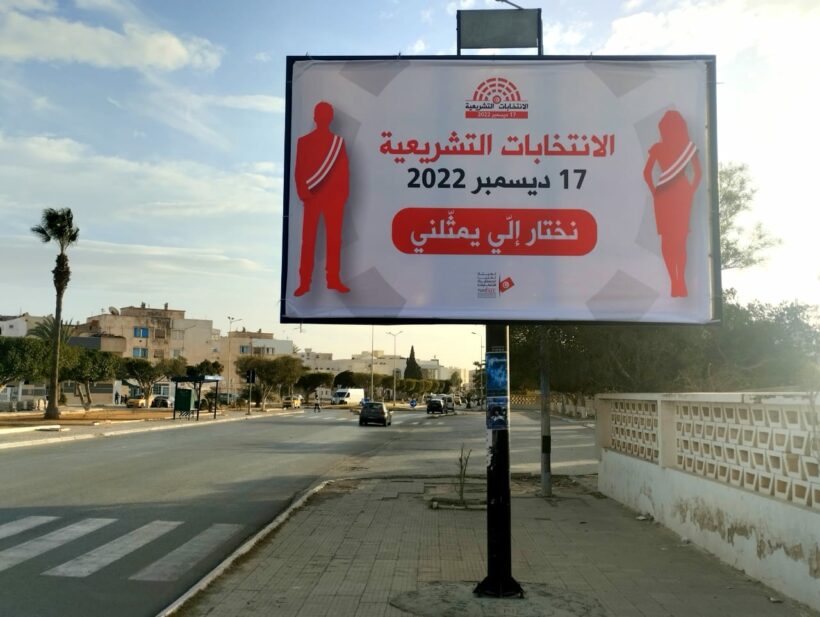After more than a year with no parliament, Tunisia is finally having its new legislative elections for new parliamentary representatives this December 17.
These elections are happening unprecedentedly because of the Tunisian president’s decision of freezing the 2019 elected parliament last year and dismantling it later this year. A decision that was approached negatively by the members of the dismantled parliament, and positively by the supporters of Saied.
July 25, 2021 was the turning point that led to these unprecedented events. People took to the streets demanding radical changes to the political system in Tunisia especially since the country remained with no approved prime minister for a period of time and a deteriorating economy that kept getting worse due to the COVID-19 pandemic. As a reaction to people’s protests, the Tunisian president announced that he was going to suspend the parliament, create a new government of independent ministers, and present a new constitution to be voted upon through a referendum by the next year.
In October 2021, Kais Saied announced the new prime minister, Najla Bouden, who made history as the first female prime minister in Tunisia and in the Arab world. Bouden then announced the formation of her cabinet that involved 26 members, 9 of them were women.
By the end of March 2022, Saied decided to dissolve the parliament completely. Then, by June 2022, he finally presented his new suggested constitution that was approved after a referendum on July 25, exactly a year after these events.
The constitution included changes in the political system making Tunisia presidential rather than parliamentary. It also gave the president more powers, and suggested the creation of two rooms in the parliament. The lower chamber is the Assembly of the Representatives of the People (ARP), the members of which will be voted upon this December 17. The lower chamber is the National Assembly of Regions and Districts (NARD) which is yet to be voted upon.
New amendments were also made to the previous electoral law. This time, people will vote for individuals instead of political parties, and the elected representatives will have 161 seats instead of the previous 217. The gender parity section that suggested having 50% women in the candidacy list was also removed from the electoral law leading to the approval of over 1000 candidates, only 122 of them are women.
The most famous political parties in Tunisia chose to boycott these elections and demanded their adherents to do so. As reported by Al-Monitor, the political parties that are boycotting the upcoming elections are mostly those who won seats in the previous parliament including Ennahda, Heart of Tunisia, the Free Destourian Party, and several others. Whereas, the new elections are going to include mostly independent figures and a few political parties that were created after the July 25 movement.
The results of the new parliamentary elections will be unexpected since the most recognized political parties chose to boycott it.
All about the new parliamentary elections in Tunisia as reported by IFES (the International Foundation for Electoral Systems): https://www.ifes.org/tools-resources/election-snapshots/elections-tunisia-2022-parliamentary-elections










